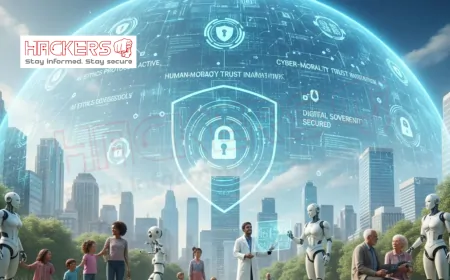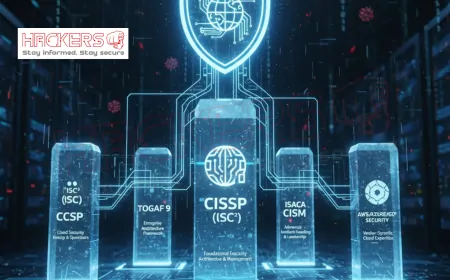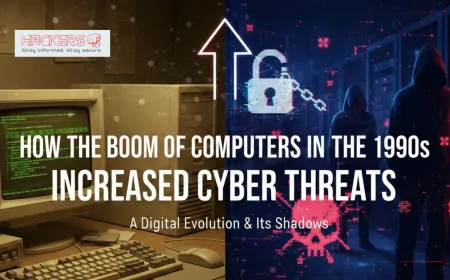How Can Cybersecurity Startups Protect NGOs and Charities at Low Cost?
Non-governmental organizations (NGOs) and charities do incredible work, from aiding vulnerable communities to advocating for change. However, their limited budgets often leave them exposed to cyber threats like data breaches, phishing, and ransomware. Cybersecurity startups, with their innovative approaches and lean operations, are uniquely positioned to help. By offering affordable, tailored solutions, these startups can protect NGOs and charities without draining their resources. This blog explores how cybersecurity startups can deliver low-cost protection to these organizations, ensuring their missions stay secure. Written in a simple, approachable tone, this guide is perfect for startup founders, NGO leaders, and anyone interested in safeguarding digital assets on a budget.

Table of Contents
- Why NGOs and Charities Need Cybersecurity
- Challenges Faced by NGOs and Charities
- How Cybersecurity Startups Can Help
- Low-Cost Cybersecurity Solutions
- Comparing Low-Cost Solutions
- Conclusion
- Frequently Asked Questions
Why NGOs and Charities Need Cybersecurity
NGOs and charities handle sensitive data, including donor information, financial records, and beneficiary details. A single breach can compromise trust, disrupt operations, and lead to financial losses. Cyberattacks are on the rise, with hackers targeting organizations of all sizes, including those with limited resources. For NGOs, a breach could mean stolen funds or exposed personal data, while charities might face reputational damage that discourages donations. Cybersecurity startups can step in with affordable solutions, ensuring these organizations stay protected without diverting funds from their core missions.
Challenges Faced by NGOs and Charities
NGOs and charities face unique cybersecurity challenges that make them vulnerable:
- Limited Budgets: Most operate on tight budgets, with funds prioritized for programs, not security.
- Lack of Expertise: Few have in-house IT staff trained in cybersecurity.
- Outdated Systems: Many rely on old software or hardware, which are easier targets for hackers.
- High Visibility: Public-facing missions attract attention, including from cybercriminals.
- Regulatory Pressure: Compliance with laws like GDPR or HIPAA adds complexity without extra resources.
Cybersecurity startups, with their agility and focus on innovation, can address these challenges effectively.
How Cybersecurity Startups Can Help
Cybersecurity startups have the flexibility to offer tailored, cost-effective solutions. Here’s how they can support NGOs and charities:
Leverage Open-Source Tools
Open-source tools, freely available software like OpenVAS for vulnerability scanning, reduce costs while providing robust protection. Startups can customize these tools to meet NGO needs.
- Benefit: No licensing fees, making services affordable.
- Example: Use pfSense for firewalls or ClamAV for antivirus protection.
Offer Tiered Service Packages
Startups can create tiered packages, from basic protection to comprehensive support, allowing NGOs to choose what fits their budget.
- Basic Package: Essential services like email security and basic training.
- Advanced Package: Includes monitoring and incident response for larger NGOs.
Provide Pro Bono or Discounted Services
Offering free or discounted services can build goodwill and attract NGOs as long-term clients.
- Benefit: Enhances reputation and opens doors to partnerships.
- Example: Free initial risk assessments to demonstrate value.
Partner with NGOs and Charities
Collaborating with NGOs for pilot programs or case studies can showcase expertise while keeping costs low.
- Benefit: Builds a portfolio and fosters trust.
- Example: Partner with a local charity to secure their donation platform.
Focus on Education and Training
Training staff to recognize threats like phishing is a low-cost way to boost security.
- Benefit: Empowers NGOs to prevent attacks independently.
- Example: Online workshops on password management and safe browsing.
Low-Cost Cybersecurity Solutions
Startups can implement specific solutions tailored for NGOs and charities. Here are practical options:
Cloud-Based Security
Cloud solutions, like Google Workspace or Microsoft 365 security features, offer affordable protection without hardware costs.
- Features: Email encryption, multi-factor authentication, and data backups.
- Cost: Low subscription fees, often discounted for nonprofits.
Vulnerability Assessments
Regular scans to identify weaknesses in systems, using tools like OpenVAS, are cost-effective and proactive.
- Process: Scan networks, patch vulnerabilities, and monitor progress.
- Cost: Minimal, especially with open-source tools.
Managed Detection and Response (MDR)
MDR services monitor threats and respond to incidents, scaled down for smaller organizations.
- Features: 24/7 monitoring using lightweight SIEM tools like OSSEC.
- Cost: Affordable with tiered pricing or shared services.
Employee Training Programs
Online or in-person training on cybersecurity basics, like spotting phishing emails, is low-cost and high-impact.
- Delivery: Use free platforms like YouTube or affordable tools like KnowBe4.
- Cost: Minimal, with reusable training materials.
Incident Response Plans
Help NGOs create simple plans to respond to breaches, reducing damage and recovery time.
- Components: Steps to isolate affected systems, notify stakeholders, and restore operations.
- Cost: Low, as plans can be templated and customized.
Comparing Low-Cost Solutions
The table below compares these solutions based on cost, complexity, and impact.
| Solution | Cost | Complexity | Impact |
|---|---|---|---|
| Cloud-Based Security | Low | Low | High |
| Vulnerability Assessments | Low | Moderate | High |
| Managed Detection and Response | Moderate | High | High |
| Employee Training | Low | Low | Moderate |
| Incident Response Plans | Low | Moderate | High |
Conclusion
Cybersecurity startups have a unique opportunity to protect NGOs and charities, ensuring their vital work continues without disruption. By leveraging open-source tools, offering tiered services, and focusing on education, startups can provide effective, low-cost solutions. These efforts not only safeguard sensitive data but also build trust and partnerships with mission-driven organizations. While challenges like limited budgets and expertise exist, startups can overcome them with creativity and collaboration. By prioritizing affordability and impact, cybersecurity startups can become invaluable allies to NGOs and charities, helping them thrive in a digital world.
Frequently Asked Questions
Why do NGOs need cybersecurity?
NGOs handle sensitive data like donor and beneficiary information, making them targets for cyberattacks that can disrupt operations.
Can charities afford cybersecurity?
Yes, cybersecurity startups offer low-cost solutions like open-source tools and tiered pricing to fit tight budgets.
What are open-source cybersecurity tools?
These are free software, like OpenVAS or pfSense, that startups can use to provide affordable protection.
How can startups offer low-cost services?
By using open-source tools, offering tiered packages, and providing pro bono or discounted services.
What is a tiered service package?
It’s a pricing model with different levels of service, from basic protection to advanced monitoring, to suit various budgets.
Why offer pro bono services?
Free or discounted services build goodwill, attract clients, and showcase expertise to NGOs and charities.
What is cloud-based security?
It uses cloud platforms like Google Workspace to provide affordable features like email encryption and backups.
How do vulnerability assessments help?
They identify weaknesses in systems, allowing NGOs to fix issues before hackers exploit them.
What is Managed Detection and Response?
MDR monitors threats and responds to incidents, offering 24/7 protection tailored for smaller organizations.
Why is employee training important?
Training helps staff recognize threats like phishing, reducing the risk of breaches at a low cost.
What is an incident response plan?
It’s a step-by-step guide to handle breaches, minimizing damage and recovery time.
Can startups partner with NGOs?
Yes, partnerships for pilot programs or case studies build trust and demonstrate value.
How do startups compete with larger firms?
By focusing on affordability, niche services, and personalized support for NGOs and charities.
What is a SIEM system?
A Security Information and Event Management system monitors threats in real-time, like OSSEC for small budgets.
Do NGOs face unique cyber threats?
Yes, their high visibility and sensitive data make them targets for hackers seeking financial or reputational damage.
How can startups build trust with NGOs?
Share case studies, offer free assessments, and maintain transparent communication.
Can startups use free training platforms?
Yes, platforms like YouTube or low-cost tools like KnowBe4 can deliver effective training.
How do startups handle compliance needs?
They help NGOs meet regulations like GDPR by offering affordable compliance audits and guidance.
Is cybersecurity complicated for NGOs?
It can be, but startups simplify it with easy-to-use tools and clear training programs.
How long does it take to secure an NGO?
Basic protection can be set up in weeks, while ongoing services ensure long-term security.
What's Your Reaction?










































































